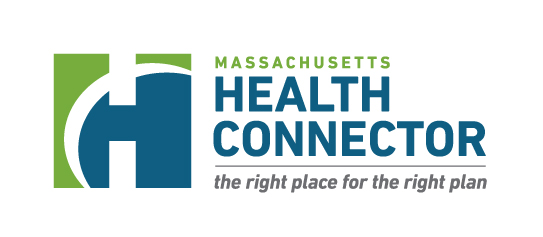Baker’s Dozen: A Common Sense Healthcare Agenda for the Next Governor
Pioneer Institute is pleased to present, “Baker’s Dozen: A Common Sense Healthcare Agenda for the Next Governor” – 13 steps we can take that cover everything from transforming incentives in the system and bringing transparency to pricing, to needed reforms to our public health system, patient engagement, and ways to lower the cost of insurance. We have been highlighting one section per day but all four sections are contained in the PDF file that is available for download below.
Baker’s Dozen A Common Sense Healthcare Agenda for the Next Governor
Day 4: Lowering Insurance Costs
 In this fourth and final installment of “Baker’s Dozen: A Common Sense Healthcare Agenda for the Next Governor,” Josh Archambault and Neil Minkoff suggest reforms to lower health insurance costs. The administration has the potential to engender decreases through a comprehensive independent review of all health insurance mandates and by repealing the misguided health insurance premium caps set into current law.
In this fourth and final installment of “Baker’s Dozen: A Common Sense Healthcare Agenda for the Next Governor,” Josh Archambault and Neil Minkoff suggest reforms to lower health insurance costs. The administration has the potential to engender decreases through a comprehensive independent review of all health insurance mandates and by repealing the misguided health insurance premium caps set into current law.
Review All Health Insurance Mandates By Conducting a Comprehensive Independent Review
Massachusetts is a leader in mandating forms of health insurance coverage that are driving up premiums to small businesses and individuals. As a result, small businesses in the Bay State pay some of the world’s highest premiums.
The Center for Health Information and Analysis (CHIA) is required to review many proposed mandates and provide information about costs. A recent analysis shows that the aggregate is over $100 million for the Commonwealth. The impact falls disproportionately on those least able to handle extra costs: small employers and individuals purchasing coverage on their own or through the Connector.
Previous Installments
 Day 1: Transforming Through Transparency
Day 1: Transforming Through Transparency
1. Release the Data
The state has pressed both insurers and providers to be more transparent about cost, clinical and financial information. The time has come for the state to lead by example. The state should move to immediately release all de-identified data from the All-Payer Claims Database (APCD) to the public. Government can serve as a convening platform to help non-profits and private companies sort out the complex pricing system that exists in the state and help patients navigate it. Such an action would reinforce the Commonwealth’s leadership in claims-based population research and give health researchers and economists the opportunity to mine the data for inefficiencies and improve the quality of care (see more on this topic in Proposal 5). Read more…
Day 2: Reforming Public Health Programs
 Day two of “Baker’s Dozen: A Common Sense Healthcare Agenda for the Next Governor” highlights the need for immediate public health program reform. Josh Archambault and Neil Minkoff argue for the protection of resources for those who are in need by auditing and reforming MassHealth (also known as Medicaid). A plan is proposed for getting the Massachusetts Connector back on track through greater promotion of transparency, possible executive and legislative branch participation, and an overhaul of the board. The suggestions for state and municipal health reform include offering employees greater plan choice and rewarding smart shopping. The next two installments will put forth ideas for how to create a more patient-oriented medical system and lower insurance costs.
Day two of “Baker’s Dozen: A Common Sense Healthcare Agenda for the Next Governor” highlights the need for immediate public health program reform. Josh Archambault and Neil Minkoff argue for the protection of resources for those who are in need by auditing and reforming MassHealth (also known as Medicaid). A plan is proposed for getting the Massachusetts Connector back on track through greater promotion of transparency, possible executive and legislative branch participation, and an overhaul of the board. The suggestions for state and municipal health reform include offering employees greater plan choice and rewarding smart shopping. The next two installments will put forth ideas for how to create a more patient-oriented medical system and lower insurance costs.
Protect Resources for the Needy by Reforming MassHealth (Medicaid)
Few realize that the MassHealth program has grown to serve over 25 percent of the state population and accounts for 40 percent of the state budget. The growth of the program is crowding out spending on education, local aid, and transportation. It is arguable that recent tax increases have more to do with healthcare spending and Medicaid than the public reasons used to justify the hikes. Read more.
On day three of “Baker’s Dozen: A Common Sense Healthcare Agenda for the Next Governor,” we challenge the new administration to create a more patient-oriented medical system. One possibility is to increase the supply of care settings for patients by reforming or phasing out antiquated and bureaucratic Determination-of-Need laws that have been shown to harm patient health, and increase costs. An additional suggestion is to grant patients greater choice of medical professionals by reforming the Scope of Practice laws, to allow providers to practice to the top of their training. Authors Archambault and Minkoff also encourage the removal of misguided insurance regulations. The final segment of “Baker’s Dozen” will offer recommendations for lowering insurance costs.
 Day 3: Increase the Supply of Care Settings for Patients By Reforming or Phasing Out Antiquated Determination-of-Need Laws
Day 3: Increase the Supply of Care Settings for Patients By Reforming or Phasing Out Antiquated Determination-of-Need Laws
Determination of need (DON) laws are the healthcare equivalent of the rules and regulations that require all students to fit into the same one-size-fits-all public schooling model developed in the 19th century. Public educational systems are moving toward reform that embraces more flexibility in the form of public charter schools, district school autonomy and even online learning. Similar approaches are needed in healthcare.



